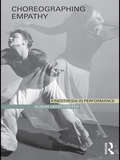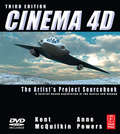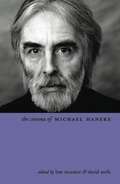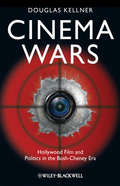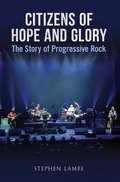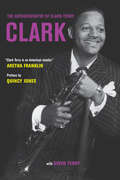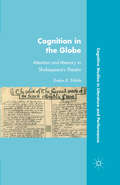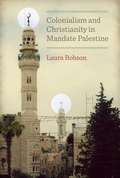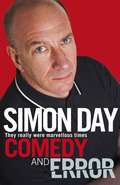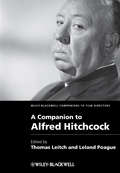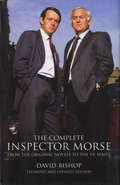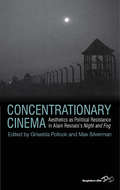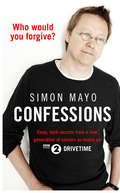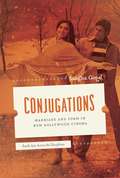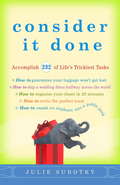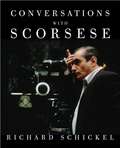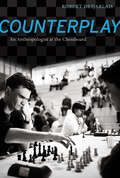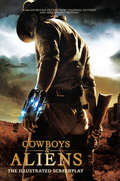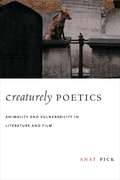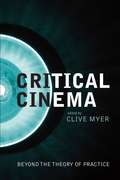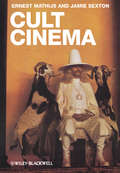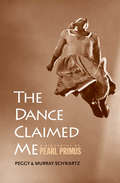- Table View
- List View
Choreographing Empathy: Kinesthesia in Performance
by Susan Foster"This is an urgently needed book � as the question of choreographing behavior enters into realms outside of the aesthetic domains of theatrical dance, Susan Foster writes a thoroughly compelling argument." � Andr�epecki, New York University"May well prove to be one of Susan Foster�s most important works." � Ramsay Burt, De Montford University, UKWh
CINEMA 4D: The Artist's Project Sourcebook
by Kent McQuilkin Anne PowersMake the creative leap to 3D. Realize your artistic vision with this treasure chest of instructional, practical projects. Get the essential concepts and techniques without drowning in the technical complexities.
The Cinema of Michael Haneke: Europe Utopia (Directors' Cuts)
by Ben McCann Sorfa David Eds.Michael Haneke is one of the most important directors working in Europe today, with films such as Funny Games (1997), Code Unknown (2000), and Hidden (2005) interrogating modern ethical dilemmas with forensic clarity and merciless insight. Haneke's films frequently implicate both the protagonists and the audience in the making of their misfortunes, yet even in the barren nihilism of The Seventh Continent (1989) and Time of the Wolf (2003) a dark strain of optimism emerges, releasing each from its terrible and inescapable guilt. It is this contingent and unlikely possibility that we find in Haneke's cinema: a utopian Europe. This collection celebrates, explicates, and sometimes challenges the worldview of Haneke's films. It examines the director's central themes and preoccupations—bourgeois alienation, modes and critiques of spectatorship, the role of the media—and analyzes otherwise marginalized aspects of his work, such as the function of performance and stardom, early Austrian television productions, the romanticism of The Piano Teacher (2001), and the 2007 shot-for-shot remake of Funny Games.
The Cinema of Michael Haneke: Europe Utopia
by Ben Mccann David SorfaMichael Haneke is one of the most important directors working in Europe today, with films such as Funny Games (1997), Code Unknown (2000), and Hidden (2005) interrogating modern ethical dilemmas with forensic clarity and merciless insight. Haneke's films frequently implicate both the protagonists and the audience in the making of their misfortunes, yet even in the barren nihilism of The Seventh Continent (1989) and Time of the Wolf (2003) a dark strain of optimism emerges, releasing each from its terrible and inescapable guilt. It is this contingent and unlikely possibility that we find in Haneke's cinema: a utopian Europe. This collection celebrates, explicates, and sometimes challenges the worldview of Haneke's films. It examines the director's central themes and preoccupations--bourgeois alienation, modes and critiques of spectatorship, the role of the media--and analyzes otherwise marginalized aspects of his work, such as the function of performance and stardom, early Austrian television productions, the romanticism of The Piano Teacher (2001), and the 2007 shot-for-shot remake of Funny Games.
Cinema Wars: Hollywood Film and Politics in the Bush-Cheney Era
by Douglas M. KellnerCinema Wars explores the intersection of film, politics, and US culture and society through a bold critical analysis of the films, TV shows, and documentaries produced in the early 2000s Offers a thought-provoking depiction of Hollywood film as a contested terrain between conservative and liberal forces Films and documentaries discussed include: Black Hawk Down, The Dark Knight, Star Wars, Syriana, WALL-E, Fahrenheit 9/11 and other Michael Moore documentaries, amongst others Explores how some films in this era supported the Bush-Cheney regime, while others criticized the administration, openly or otherwise Investigates Hollywood’s treatment of a range of hot topics, from terrorism and environmental crisis to the Iraq war and the culture wars of the 2000s Shows how Hollywood film in the 2000s brought to life a vibrant array of social protest and helped create cultural conditions to elect Barack Obama
Citizens of Hope and Glory: The Story of Progressive Rock
by Stephen LambeCreated in the late 1960s, fashionable in the early 1970s and hated in the 1980s, Progressive Rock has a colourful and eventful story. Many of the genre's main protagonists, including Genesis, Yes, King Crimson and Emerson, Lake & Palmer, remain as popular as ever, while lesser-known names like Camel, Caravan, Renaissance, Van der Graaf Generator and Gentle Giant retain cult status. Prog expert Stephen Lambe guides the reader through the early years as the music developed out of the British Progressive Music boom of the late 1960s into its own genre, and reached full maturity in the early 1970s. He also discusses how the music was received and developed outside the UK, particularly in the USA, Italy and the Scandinavian countries. Received wisdom has it that punk swept Progressive Rock away in the late 1970s, yet the genre never died. An early 1980s revival, spearheaded by major label signings Marillion, IQ and Pallas, burned brightly but fell away sharply later in the decade. However, in the early 1990s, the movement began to re-establish itself, largely below the radar, led by Swedish band The Flower Kings and American group Spock's Beard. The rise of the internet and the decline of the worldwide pop industry allowed niche music - as Progressive Rock had now become - to flourish once again in the new millennium.
Clark: The Autobiography of Clark Terry
by Gwen Terry Clark Terry Quincy Jones Bill CosbyCompelling from cover to cover, this is the story of one of the most recorded and beloved jazz trumpeters of all time. With unsparing honesty and a superb eye for detail, Clark Terry, born in 1920, takes us from his impoverished childhood in St. Louis, Missouri, where jazz could be heard everywhere, to the smoke-filled small clubs and carnivals across the Jim Crow South where he got his start, and on to worldwide acclaim. Terry takes us behind the scenes of jazz history as he introduces scores of legendary greats--Ella Fitzgerald, Oscar Peterson, Dizzy Gillespie, Dinah Washington, Doc Severinsen, Ray Charles, Thelonious Monk, Billie Holiday, Sarah Vaughan, Coleman Hawkins, Zoot Sims, and Dianne Reeves, among many others. Terry also reveals much about his own personal life, his experiences with racism, how he helped break the color barrier in 1960 when he joined the Tonight Show band on NBC, and why--at ninety years old--his students from around the world still call and visit him for lessons.
Close to Famous
by Joan BauerFoster McFee dreams of having her own cooking show like her idol, celebrity chef Sonny Kroll. Macon Dillard's goal is to be a documentary filmmaker. Foster's mother Rayka longs to be a headliner instead of a back-up singer. And Miss Charleena plans a triumphant return to Hollywood. Everyone has a dream, but nobody is even close to famous in the little town of Culpepper. Until some unexpected events shake the town and its inhabitants-and put their big ambitions to the test. Full of humor, unforgettable characters, surprises, and lots and lots of heart, this is Joan Bauer at her most engaging.<P><P> Winner of the Schneider Family Book Award
Cognition in the Globe: Attention and Memory in Shakespeare’s Theatre (Cognitive Studies in Literature and Performance)
by Evelyn B. TribbleEarly modern playing companies performed up to six different plays a week and mounted new plays frequently. This book seeks to answer a seemingly simple question: how did they do it? Drawing upon work in philosophy and the cognitive sciences, it proposes that the cognitive work of theatre is distributed across body, brain, and world.
Colonialism and Christianity in Mandate Palestine
by Laura RobsonDrawing on a rich base of British archival materials, Arabic periodicals, and secondary sources, Colonialism and Christianity in Mandate Palestine brings to light the ways in which the British colonial state in Palestine exacerbated sectarianism. By transforming Muslim, Christian, and Jewish religious identities into legal categories, Laura Robson argues, the British ultimately marginalized Christian communities in Palestine. Robson explores the turning points that developed as a result of such policies, many of which led to permanent changes in the region's political landscapes. Cases include the British refusal to support Arab Christian leadership within Greek-controlled Orthodox churches, attempts to avert involvement from French or Vatican-related groups by sidelining Latin and Eastern Rite Catholics, and interfering with Arab Christians' efforts to cooperate with Muslims in objecting to Zionist expansion. Challenging the widespread but mistaken notion that violent sectarianism was endemic to Palestine, Colonialism and Christianity in Mandate Palestine shows that it was intentionally stoked in the wake of British rule beginning in 1917, with catastrophic effects well into the twenty-first century.
Comedy and Error: They Really Were Marvellous Times
by Simon DayBest known as one of the stars of the Fast Show (where he played characters such as Dave Angel -- Eco-Warrior, Tommy Cockles and Competitive Dad) and Bellamy's People co-starring Paul Whitehouse, Simon Day tells the shocking, sometimes sad and hilariously funny story of his life so far. Simon Day's memoir is a story of unlikely successes and secret lives. In the early 1980s he was a petty thief living rough in South East London and stealing whatever he could to fund an addiction to fruit machines. He was arrested and sentenced to borstal. Simon's memoir tells the story of how this nice, middle-class boy from the suburbs -- a self-confessed 'crap criminal' -- served time with the professionals and hard-cases in a jail fiercely divided along racial lines during the height of the 1981 riots. It moves on to the lucky breaks, the talent getting recognised, the 'redemption' of his years as a celebrity . . . with the parallel story of his addiction which -- with money and success -- became fuelled by drugs. Dark and dramatic, Simon Day's memoir is a laugh-out-loud-funny story of drugs, crime and comedy.
A Companion to Alfred Hitchcock (Wiley Blackwell Companions To Film Directors Ser. #12)
by Thomas Leitch Leland PoagueThe most comprehensive volume ever published on Alfred Hitchcock, covering his career and legacy as well as the broader cultural and intellectual contexts of his work. Contains thirty chapters by the leading Hitchcock scholars Covers his long career, from his earliest contributions to other directors’ silent films to his last uncompleted last film Details the enduring legacy he left to filmmakers and audiences alike
The Complete Inspector Morse (New Revised Edition)
by David BishopA companion to the PBS Mystery! hit Inspector Morse TV series, covering all 33 episodes of the show, as well as the original novels that inspired the series and other related media such as the radio plays. Also includes a critique of each episode, along with useful facts, details of the soundtracks and key character beats. It also includes a brief discussion of the hugely successful spin-off series, Lewis.
Concentrationary Cinema
by Griselda Pollock Max SilvermanSince its completion in 1955, Alain Resnais's Night and Fog (Nuit et Brouillard) has been considered one of the most important films to confront the catastrophe and atrocities of the Nazi era. But was it a film about the Holocaust that failed to recognize the racist genocide? Or was the film not about the Holocaust as we know it today but a political and aesthetic response to what David Rousset, the French political prisoner from Buchenwald, identified on his return in 1945 as the 'concentrationary universe' which, now actualized, might release its totalitarian plague any time and anywhere? What kind of memory does the film create to warn us of the continued presence of this concentrationary universe? This international collection re-examines Resnais's benchmark film in terms of both its political and historical context of representation of the camps and of other instances of the concentrationary in contemporary cinema. Through a range of critical readings, Concentrationary Cinema explores the cinematic aesthetics of political resistance not to the Holocaust as such but to the political novelty of absolute power represented by the concentrationary system and its assault on the human condition.
Confessions
by Simon MayoSimon Mayo first opened his confessional in 1988 on BBC Radio 1's Breakfast Show. Every day, one shamefaced listener would share their deepest, darkest secret while millions tuned in to find out whether or not Simon would grant his forgiveness.Over twenty years later, Simon presents the daily Drivetime show on BBC Radio 2, and the confessions segment is back. Now those guilty listeners who missed their chance first time round have joined a whole new generation of sinners to beg for clemency from Father Mayo and his flock. From supermarket-wrecking games of 'aisle catch' to kidnapped pensioners and clandestine pet vasectomies, this is a brand-new collection of hilarious letters and emails from Simon's ever-popular show.Join the discussion on Twitter: #drivetimeconfessions
Conjugations
by Sangita GopalBollywood movies have been long known for their colorful song-and-dance numbers and knack for combining drama, comedy, action-adventure, and music. But when India entered the global marketplace in the early 1990s, its film industry transformed radically. Production and distribution of films became regulated, advertising and marketing created a largely middle-class audience, and films began to fit into genres like science fiction and horror. In this bold study of what she names New Bollywood, Sangita Gopal contends that the key to understanding these changes is to analyze films' evolving treatment of romantic relationships. Gopalargues that the form of the conjugal duo in movies reflects other social forces in India's new consumerist and global society. She takes a daring look at recent Hindi films and movie trends--the decline of song-and-dance sequences, the upgraded status of the horror genre, and the rise of the multiplex and multi-plot--to demonstrate how these relationships exemplify different formulas of contemporary living. A provocative account of how cultural artifacts can embody globalization's effects on intimate life, Conjugations will shake up the study of Hindi film.
Consider It Done: Accomplish 228 of Life's Trickiest Tasks
by Julie SubotkyThere’s nothing Julie Subotky can’t get done. After all, as the founder and CEO of a lifestyle management and personal concierge company catering to the crème-de-la-crème of New York, LA, and Aspen, she’s used the fielding her fair share of formidable requests from wealthy and time starved clients. Luckily, now you don’t need to be a rock star, socialite, or millionaire to Consider it Done. In this charming and unique book, she shares her secrets from for accomplishing hundreds of life's most bizarre, off-beat, and yet often inescapable tasks. Ranging from the unusual but useful, to the seemingly impossible, to the annoying but necessary, these include: How to hire a snake dancer for a party within 24 hours notice How to argue your way out of a speeding ticket How to get a last-minute table at an impossibly overbooked restaurant How to find a reputable pet psychic How to get the best seat on an airplane How to blow a date How to fix a hole in the wall How to get a wedding dress shipped halfway across the world How to refuse a dare How to change a tire How to make a citizen's arrest How to mix the perfect hangover cure …and countless more Filled with practical tips, hints and advice as well as hilarious stories of near mishaps, crazy wild goose chases, and outrageous requests from eccentric clients, Consider it Done is sometimes zany, often surprising, and yet always useful. After all, there may come a time when you actually need to know how propose to someone in skywriting, replace a matching spoon from your great-great-great grandmother's antique silver set, or simply make the perfect martini. When that day comes, this essential and completely one-of-a-kind book will be there to walk you through it.
Conversations with Scorsese
by Richard SchickelMean Streets, Taxi Driver, Raging Bull, The Last Temptation of Christ, Kundun, The Departed, The Aviator, Shutter Island: these are just a few of the critically acclaimed films, startling experimental works, and spectacular commercial blockbusters with which Martin Scorsese has forever enriched American cinema. Here is a rare and wonderfully insightful chance to experience all of these films, and the history and process of moviemaking in general, through the words and wit of the master director. Richard Schickel's canny and intelligent interviews guide us through Scorsese's life and work, from the child who escaped the realities of Little Italy in the 1950s through movies to the man whose increasingly encyclopedic knowledge of film shaped his ambitions and art. Scorsese reveals which films are most autobiographical and which have been forays into unknown territory in content or aesthetics. He talks about his lesser-known movies, those already considered classics, his documentaries, and his influences. He explains his personal style, the close attention he pays to detail, and his attraction to genre films. And he discusses what being a lifelong student of film has taught him about acting, directing, music, and camerawork, among many other topics. The result is a vivid, immensely enlightening history of modern Hollywood seen through the eyes of one intrepid filmmaker. We see audiences' expectations tested by what Scorsese was willing to put on the screen in explorations of prostitution, institutionalized violence, and religion. We see the unavoidable frustrations and exhilarating rewards of filming live concerts for The Band and at Woodstock. And we see many of the rewarding artistic and personal relationships of Scorsese's career, including collaborations with Robert De Niro, Harvey Keitel, Jack Nicholson, and Leonardo DiCaprio. An invaluable appreciation of one of our most admired film directors.
Counterplay: An Anthropologist at the Chessboard
by Robert R. Desjarlais"Chess gets a hold of some people, like a virus or a drug," writes Robert Desjarlais in this absorbing book. Drawing on his lifelong fascination with the game, Desjarlais guides readers into the world of twenty-first-century chess to help us understand its unique pleasures and challenges, and to advance a new "anthropology of passion." Immersing us directly in chess's intricate culture, he interweaves small dramas, closely observed details, illuminating insights, colorful anecdotes, and unforgettable biographical sketches to elucidate the game and to reveal what goes on in the minds of experienced players when they face off over the board. Counterplay offers a compelling take on the intrigues of chess and shows how themes of play, beauty, competition, addiction, fanciful cognition, and intersubjective engagement shape the lives of those who take up this most captivating of games.
Cowboys and Aliens
by Universal PicturesBlockbuster filmmaker Jon Favreau directs Daniel Craig and Harrison Ford in a film that crosses the classic Western with the alien-invasion movie in a blazingly original way: Cowboys & Aliens. Joined by an arsenal of top moviemakers-Steven Spielberg, Ron Howard, Brian Grazer, Alex Kurtzman and Roberto Orci-he brings an all-new action thriller that will take audiences into the Old West, where a lone cowboy leads an uprising against a terror from beyond our world.1875. New Mexico Territory. A stranger (Craig) with no memory of his past stumbles into the hard desert town of Absolution. The only hint to his history is a mysterious shackle that encircles one wrist. What he discovers is that the people of Absolution don't welcome strangers, and nobody makes a move on its streets unless ordered to do so by the iron-fisted Colonel Dolarhyde (Ford). It's a town that lives in fear.But Absolution is about to experience fear it can scarcely comprehend as the desolate city is attacked by marauders from the sky. Screaming down with breathtaking velocity and blinding lights to abduct the helpless one by one, these monsters challenge everything the residents have ever known.Now, the stranger they rejected is their only hope for salvation. As this gunslinger slowly starts to remember who he is and where he's been, he realizes he holds a secret that could give the town a fighting chance against the alien force. With the help of the elusive traveler Ella (Olivia Wilde), he pulls together a posse comprised of former opponents-townsfolk, Dolarhyde and his boys, outlaws and Apache warriors-all in danger of annihilation. United against a common enemy, they will prepare for an epic showdown for survival.The script for Cowboys & Aliens is by Star Trek's Alex Kurtzman & Roberto Orci and Damon Lindelof (television's Lost), based on Platinum Studios' graphic novel created by Scott Mitchell Rosenberg. Grazer, Howard, Rosenberg, Kurtzman and Orci produce. Spielberg and Denis L. Stewart executive produce.
Creaturely Poetics: Animality and Vulnerability in Literature and Film
by Anat PickSimone Weil once wrote that "the vulnerability of precious things is beautiful because vulnerability is a mark of existence," establishing a relationship between vulnerability, beauty, and existence transcending the separation of species. Her conception of a radical ethics and aesthetics could be characterized as a new poetics of species, forcing a rethinking of the body's significance, both human and animal. Exploring the "logic of flesh" and the use of the body to mark species identity, Anat Pick reimagines a poetics that begins with the vulnerability of bodies, not the omnipotence of thought. Pick proposes a "creaturely" approach based on the shared embodiedness of humans and animals and a postsecular perspective on human-animal relations. She turns to literature, film, and other cultural texts, challenging the familiar inventory of the human: consciousness, language, morality, and dignity. Reintroducing Weil's elaboration of such themes as witnessing, commemoration, and collective memory, Pick identifies the animal within all humans, emphasizing the corporeal and its issues of power and freedom. In her poetics of the creaturely, powerlessness is the point at which aesthetic and ethical thinking must begin.
Critical Cinema: Beyond the Theory of Practice
by Myer Clive Ed.Critical Cinema: Beyond the Theory of Practice purges the obstructive line between the making of and the theorising on film, uniting theory and practice in order to move beyond the commercial confines of Hollywood. Opening with an introduction by Bill Nichols, one of the world's leading writers on nonfiction film, this volume features contributions by such prominent authors as Noel Burch, Laura Mulvey, Peter Wollen, Brian Winston and Patrick Fuery. Seminal filmmakers such as Peter Greenaway and Mike Figgis also contribute to the debate, making this book a critical text for students, academics, and independent filmmakers as well as for any reader interested in new perspectives on culture and film.
Critical Cinema: Beyond the Theory of Practice
by Clive MyerCritical Cinema: Beyond the Theory of Practice purges the obstructive line between the making of and the theorising on film, uniting theory and practice in order to move beyond the commercial confines of Hollywood. Opening with an introduction by Bill Nichols, one of the world's leading writers on nonfiction film, this volume features contributions by such prominent authors as Noel Burch, Laura Mulvey, Peter Wollen, Brian Winston and Patrick Fuery. Seminal filmmakers such as Peter Greenaway and Mike Figgis also contribute to the debate, making this book a critical text for students, academics, and independent filmmakers as well as for any reader interested in new perspectives on culture and film.
Cult Cinema: An Introduction (Routledge Media And Cultural Studies Companions Ser.)
by Ernest Mathijs Jamie SextonCult Cinema: an Introduction presents the first in-depth academic examination of all aspects of the field of cult cinema, including audiences, genres, and theoretical perspectives. Represents the first exhaustive introduction to cult cinema Offers a scholarly treatment of a hotly contested topic at the center of current academic debate Covers audience reactions, aesthetics, genres, theories of cult cinema, as well as historical insights into the topic
The Dance Claimed Me: A Biography of Pearl Primus
by Murray Schwartz Peggy SchwartzPearl Primus (1919-1994) blazed onto the dance scene in 1943 with stunning works that incorporated social and racial protest into their dance aesthetic. In The Dance Claimed Me, Peggy and Murray Schwartz, friends and colleagues of Primus, offer an intimate perspective on her life and explore her influences on American culture, dance, and education. They trace Primus's path from her childhood in Port of Spain, Trinidad, through her rise as an influential international dancer, an early member of the New Dance Group (whose motto was "Dance is a weapon"), and a pioneer in dance anthropology. Primus traveled extensively in the United States, Europe, Israel, the Caribbean, and Africa, and she played an important role in presenting authentic African dance to American audiences. She engendered controversy in both her private and professional lives, marrying a white Jewish man during a time of segregation and challenging black intellectuals who opposed the "primitive" in her choreography. Her political protests and mixed-race tours in the South triggered an FBI investigation, even as she was celebrated by dance critics and by contemporaries like Langston Hughes. For The Dance Claimed Me, the Schwartzes interviewed more than a hundred of Primus's family members, friends, and fellow artists, as well as other individuals to create a vivid portrayal of a life filled with passion, drama, determination, fearlessness, and brilliance.
